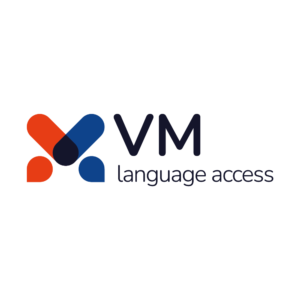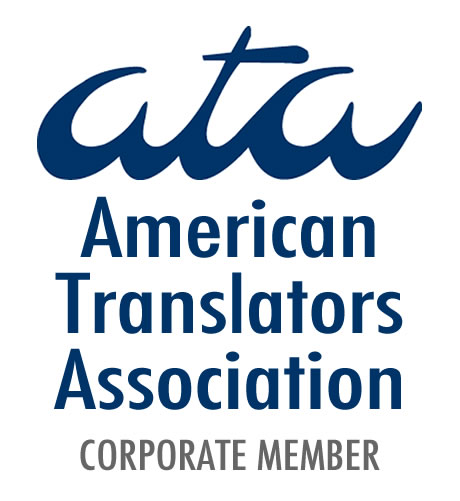
Government Translation Services: Why They Are Essential
Language plays a crucial role in the relationship between governments and the people they serve. In a world where multiculturalism and global interactions are the norm, ensuring that public services are accessible to individuals who speak different languages is more important than ever. This is where government translation services come in, ensuring that non-English speakers, immigrants, and international stakeholders can fully understand and participate in governmental processes.
But beyond public service, translation services have a broader impact. Many businesses rely on government contracts, regulatory compliance, and official documentation. In fact, how translation boosts business growth is often overlooked when discussing the importance of translation in the public sector. For companies looking to expand into new markets, navigate complex regulations, or collaborate with government agencies, high-quality translation is not just an option—it’s a necessity.
In this article, we’ll explore why government translation services are essential, how they impact businesses and individuals, and what happens when translation services are neglected.
The Role of Government Translation Services
Government agencies interact with the public in countless ways, from public health initiatives to legal documentation and immigration services. For these interactions to be effective, accurate and culturally appropriate translation services are required.
Ensuring Equal Access to Public Services
Not everyone living in a country speaks the official language fluently. In the U.S., for example, over 67 million people speak a language other than English at home. Without government translation services, these individuals could struggle to access essential services such as healthcare, legal aid, and emergency assistance.
Language barriers should not be a reason someone is denied access to justice or healthcare. By providing translations of legal forms, medical documents, and educational materials, governments can ensure inclusivity and prevent systemic discrimination.
Enhancing Legal and Judicial Processes
Justice systems rely heavily on precise communication. A single mistranslation in a legal document can result in wrongful convictions, contract disputes, or misinterpretation of laws. Courts often require professional interpreters and translators to ensure that all parties involved in a case fully understand the proceedings, their rights, and their responsibilities.
Strengthening Public Safety and Emergency Communication
When natural disasters, health crises, or public safety threats arise, clear and immediate communication is essential. Governments must distribute critical information in multiple languages to ensure that everyone, regardless of their linguistic background, understands evacuation routes, medical instructions, or safety precautions.
During the COVID-19 pandemic, mistranslations of health guidelines in some regions led to confusion, misinformation, and noncompliance. This highlights why government translation services’ importance cannot be overstated—lives literally depend on it.
How Government Translation Boosts Business Growth
While the primary role of government translation services is to serve the public, businesses also benefit significantly from them. Many companies work closely with government agencies, whether for licensing, regulatory compliance, or contracts. Without accurate translation services, businesses can face legal troubles, miss out on lucrative government contracts, or fail to meet compliance standards.
Helping Businesses Navigate Regulations
Many industries, such as healthcare, finance, and manufacturing, operate under strict government regulations. These regulations often need to be understood in multiple languages, especially for international businesses expanding into new markets. Without clear translations of compliance documents, businesses risk fines, legal action, or even shutdowns.
Unlocking Global Trade Opportunities
For businesses looking to enter international markets, government agencies play a role in trade agreements, export regulations, and business permits. Companies that rely on government contracts or interact with foreign governments must have precise translations of policies, legal requirements, and contracts. This ensures smooth collaboration and prevents costly misunderstandings.
Supporting Tourism and Local Economies
Tourism is a major revenue generator for many countries. Governments that invest in multilingual signage, translated travel information, and interpreter services help make their destinations more accessible to international travelers. This, in turn, boosts local businesses, from hotels and restaurants to tour companies and retail shops.
Facilitating International Partnerships and Investments
Government initiatives often attract foreign investments, whether through infrastructure projects, educational exchanges, or trade partnerships. When official documents, contracts, and agreements are available in multiple languages, it builds trust and confidence among foreign investors and business partners.
The Consequences of Neglecting Translation Services
What happens when government translation services are inadequate or ignored? The consequences can be severe, both for individuals and businesses.
Misinformation and Miscommunication
Without proper translations, public information can be misunderstood, leading to serious consequences. For example, unclear tax documents can lead to penalties for businesses, while mistranslated healthcare information can put lives at risk.
Legal Risks and Discrimination
Governments that fail to provide adequate translation services may face lawsuits for discrimination. In the U.S., Title VI of the Civil Rights Act requires federally funded programs to provide language access services to ensure that non-English speakers are not excluded from public benefits.
Lost Economic Opportunities
If businesses struggle to understand government regulations due to language barriers, they may be discouraged from investing or expanding in certain regions. This can slow economic growth and reduce job creation.
Erosion of Public Trust
When people feel that the government does not provide accessible information in their language, they may distrust government institutions and disengage from civic participation. This can weaken democracy and community cohesion.
The Future of Government Translation Services
With advancements in technology, governments are exploring ways to improve translation efficiency. AI-powered translation tools are being used to supplement human translation, but they are not without limitations. Machine translation still struggles with nuances, legal jargon, and cultural sensitivities—areas where human translators excel.
Investing in Professional Translators
Despite the rise of AI, professional human translators remain irreplaceable in government settings. Unlike machines, human translators can adapt to context, tone, and cultural nuances. Governments must continue investing in skilled translators and interpreters to ensure accuracy and reliability.
Embracing Technology for Efficiency
While AI cannot replace human translators, it can assist them by handling repetitive tasks, speeding up document processing, and improving accessibility through instant translation tools. A hybrid approach, combining AI with human expertise, can enhance government translation services.
Expanding Multilingual Services
As global migration and multiculturalism continue to shape societies, governments will need to expand their language access initiatives. This includes translating websites, official documents, and emergency alerts into a wider range of languages.
Government translation services are not just about language—they are about inclusion, safety, and economic progress. From ensuring equal access to public services to helping businesses navigate regulations, translation plays a vital role in government operations and business growth.
Neglecting translation services can lead to misinformation, legal complications, and lost economic opportunities. As the world becomes more interconnected, the demand for high-quality government translation services will only increase. By investing in professional translation and leveraging technology, governments can foster stronger communities, boost business opportunities, and ensure that language is never a barrier to success.











